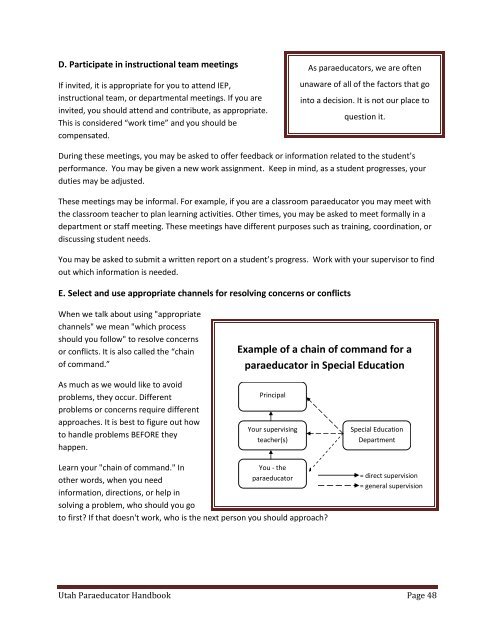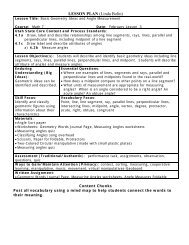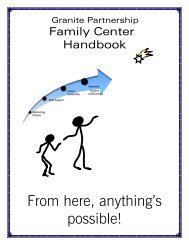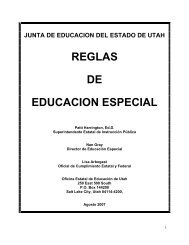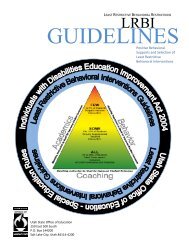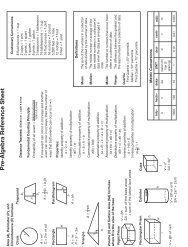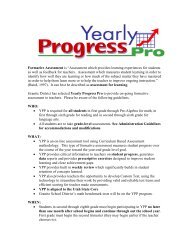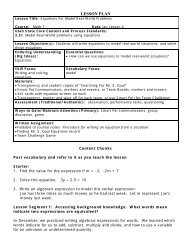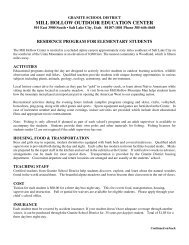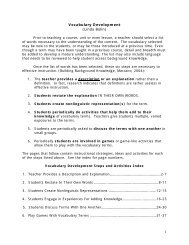Utah Special Education Paraeducator Handbook - Granite School ...
Utah Special Education Paraeducator Handbook - Granite School ...
Utah Special Education Paraeducator Handbook - Granite School ...
You also want an ePaper? Increase the reach of your titles
YUMPU automatically turns print PDFs into web optimized ePapers that Google loves.
D. Participate in instructional team meetings<br />
If invited, it is appropriate for you to attend IEP,<br />
instructional team, or departmental meetings. If you are<br />
invited, you should attend and contribute, as appropriate.<br />
This is considered “work time” and you should be<br />
compensated.<br />
As paraeducators, we are often<br />
unaware of all of the factors that go<br />
into a decision. It is not our place to<br />
question it.<br />
During these meetings, you may be asked to offer feedback or information related to the student’s<br />
performance. You may be given a new work assignment. Keep in mind, as a student progresses, your<br />
duties may be adjusted.<br />
These meetings may be informal. For example, if you are a classroom paraeducator you may meet with<br />
the classroom teacher to plan learning activities. Other times, you may be asked to meet formally in a<br />
department or staff meeting. These meetings have different purposes such as training, coordination, or<br />
discussing student needs.<br />
You may be asked to submit a written report on a student’s progress. Work with your supervisor to find<br />
out which information is needed.<br />
E. Select and use appropriate channels for resolving concerns or conflicts<br />
When we talk about using "appropriate<br />
channels" we mean "which process<br />
should you follow" to resolve concerns<br />
or conflicts. It is also called the “chain<br />
of command.”<br />
Example of a chain of command for a<br />
paraeducator in <strong>Special</strong> <strong>Education</strong><br />
As much as we would like to avoid<br />
problems, they occur. Different<br />
problems or concerns require different<br />
approaches. It is best to figure out how<br />
to handle problems BEFORE they<br />
happen.<br />
Principal<br />
Your supervising<br />
teacher(s)<br />
<strong>Special</strong> <strong>Education</strong><br />
Department<br />
Learn your "chain of command." In<br />
other words, when you need<br />
information, directions, or help in<br />
solving a problem, who should you go<br />
You - the<br />
paraeducator<br />
to first? If that doesn't work, who is the next person you should approach?<br />
= direct supervision<br />
= general supervision<br />
<strong>Utah</strong> <strong>Paraeducator</strong> <strong>Handbook</strong> Page 48


